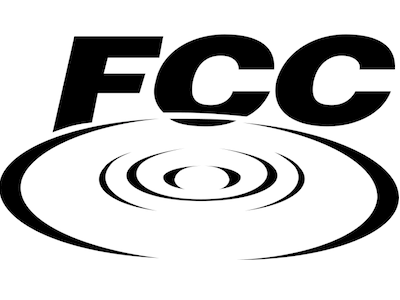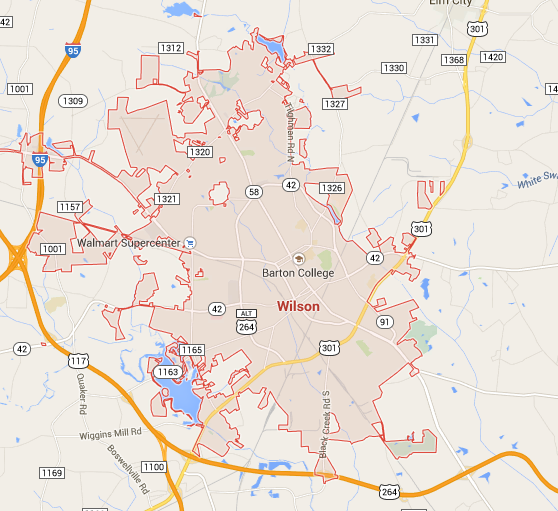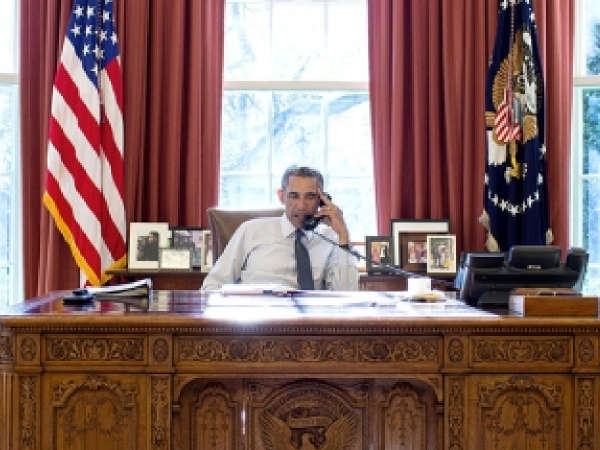FCC Investigates Municipal Broadband Battle In North Carolina And Tennesee
Get Tom's Hardware's best news and in-depth reviews, straight to your inbox.
You are now subscribed
Your newsletter sign-up was successful
The FCC is considering taking action in a dispute between ISPs and at least two cities: Chattanooga, Tennessee, and Wilson, North Carolina.
The dispute began back in 2011, after the city of Wilson, North Carolina attempted to contact locally-available ISPs to negotiate faster and better-priced Internet speeds for the city's inhabitants.
The two incumbent ISPs, Time Warner Cable and Embarq, refused to meet the city's requests. In response, the city of Wilson developed a new local municipal broadband service provider called Greenlight in order to bring the improved Internet performance that the local Internet service providers refused to provide. Around the same time, Chattanooga also completed work on its own municipal broadband network.
These municipal broadband networks are able to give much better performance to users. Greenlight offers service plans that range from 40 Mbps for $34.95, up to an amazingly fast 1 Gbps for $99.95.
In response to the rise of these municipal networks, both state governments of Tennessee and North Carolina took action to pass legislation preventing the growth of these networks from encompassing greater areas, and to prevent other cities from following the same path. Since the drafting of these bills, no further municipal broadband networks have been established, and the two that already exist have not been able to expand.
Now, following the vote last week to change the definition of broadband Internet to 25 Mbps down and 3 Mbps up, the FCC is turning its attention to other ways to help provide faster Internet across the country. The draft is currently being considered by FCC Chairman Tom Wheeler, and is expected to be circulated to other FCC commissioners in the coming weeks.
The draft aims to remove barriers that prevent the development of Internet services under city management currently imposed by state laws. In North Carolina, House Bill 129 prevents Greenlight from being able to competitively price Internet access, requiring services to be priced at or above competing Internet service providers.
Get Tom's Hardware's best news and in-depth reviews, straight to your inbox.
In Tennessee, the laws prevent municipal networks from expanding past a limited geographic area, so they cannot expand into multiple municipalities. In addition, large ISPs have risen up against both municipal networks, stating that the use of state funds for the construction of municipal networks is a misuse of state resources and should be outlawed.
Foreseeing future attempts to build municipal networks, other states have taken preemptive action. Currently, there are 19 states with such laws preventing cities from developing these networks.
According to Section 706 of the Communications Act, the promotion and development of broadband networks inside of the United States is listed as a duty of the FCC, and as such, the agency has the authority to call laws into question that prevent broadband networks from developing. As a result, Section 706 has also come under fire from Republicans who feel this does not permit the FCC from taking action on behalf of cities against their state governments. Instead, the Republicans feel that the private sector is more qualified to set up broadband networks, and municipal networks should not be outlawed.
To prevent possible intervention from the FCC, Republicans are taking action in Congress. A proposed bill by Senator John Thune of South Dakota and House Representative Fred Upton of Michigan is currently being deliberated. If passed, the FCC would be restricted and unable to use Section 706 to intervene in the decisions of state governments against municipal broadband networks.
President Barack Obama called on the FCC last month to encourage further action in the development of broadband Internet services. President Obama made it clear that he felt it was imperative that broadband networks and competition be encouraged. With 55 million Americans now without access to broadband Internet, and many only having one or two options for ISPs, the U.S. has fallen below many other nations in terms of network speed and availability.
The President has in recent years been quite active in attempting to improve Internet inside of the U.S. The country currently ranks 18th in the world for Internet penetration, only scoring 84.2 percent. Worse yet, the U.S. ranks 30th in average download speed with a rating of 18.47 Mbps.
Just a few weeks ago on January 14, the President traveled to Cedar Falls, Iowa, another city that has built up a municipal broadband network, to show his support of the city's efforts. During a video announcement before his trip to Cedar Falls, President Obama pointed out that the four cities with the fastest Internet in the world were in other countries, and following close behind was Cedar Falls, Iowa.
The President made it clear that there are significant advantages to developing municipal networks, and that having slower networks can cost money, ruin business deals, and have a detrimental effect on students' ability to study.
With the greatly increased Internet speeds being demonstrated by the municipal networks, it seems clear that larger ISPs have a negative impact on the Internet performance of the U.S. as a whole. Companies such as AT&T, Comcast, Time Warner Cable, and others are multi-billion dollar companies that should be capable of establishing networks able to compete or outperform those set up by cities. The cities that have set up their own networks only paid an average of $28 million in order to provide a faster and cheaper network for their citizens.
Leading up to this decision, the tensions between various parts of the United States federal and state governments have been growing. It is likely that a decision either way will result in further political action in the near future.
The draft is expected to be voted on at the public FCC meeting, which will be held on February 26.
Follow us @tomshardware, on Facebook and on Google+.
Seth Colaner previously served as News Director at Tom's Hardware. He covered technology news, focusing on keyboards, virtual reality, and wearables.
-
damric The GOP cronies want to make us to fall back into the stone age with thier version of Sharia Law.Reply -
Randy Garrett How about getting the government completely out of the Broadband business and smash the barriers to entry erected by municipalities, county, state and federal governments.Reply -
damric Reply15210907 said:How about getting the government completely out of the Broadband business and smash the barriers to entry erected by municipalities, county, state and federal governments.
Right because that worked so well with telecoms, railroads, and other infrastructures in the past. A good example of poor regulation and infrastructure is Nigeria. Would anyone like to live in that mud hole? No thanks, I'll pay taxes and drive on the interstate highway system. -
acadia11 Well clearly of the cities were able to build a faster network for ch worr obviously the private sector isn't the best answer. And who the he ll said my money is required to go a private company I'll give my dollars who ever does it best, whether that's the government or a private company it's not a philosophical issue for me.Reply -
kenjitamura " AT&T, Comcast, Time Warner Cable, and others are multi-billion dollar companies that should be capable of establishing networks able to compete or outperform those set up by cities. The cities that have set up their own networks only paid an average of $28 million in order to provide a faster and cheaper network for their citizens."Reply
Well yeah, the large ISP's COULD put more money into infrastructure. But if they did that it'd reduce the budget they can use for lobbying government officials to pass laws that prevent municipal governments from creating infrastructure. Fixing competitions in your favor gives a much more certain return of profits than actually competing. -
cyphacipher I live in Wilson NC, and Greenlight is a good network. They provide tv services and very fast internet. Its also more affordable than TWC and Embarq. If the city can do a better job than TWC, I'm all for it.Reply -
alextheblue One issue I have with local government ISPs is that they use taxpayer money to subsidize a lot of the cost. Another issue is that if they eventually sink private ISPs, you'll end up with a true monopoly. It's a dangerous path to tread and I'm not sure they're handling it right.Reply -
damric Reply15211158 said:One issue I have with local government ISPs is that they use taxpayer money to subsidize a lot of the cost. Another issue is that if they eventually sink private ISPs, you'll end up with a true monopoly. It's a dangerous path to tread and I'm not sure they're handling it right.
We already subsidize the large ISPs, and they make windfall profits.



